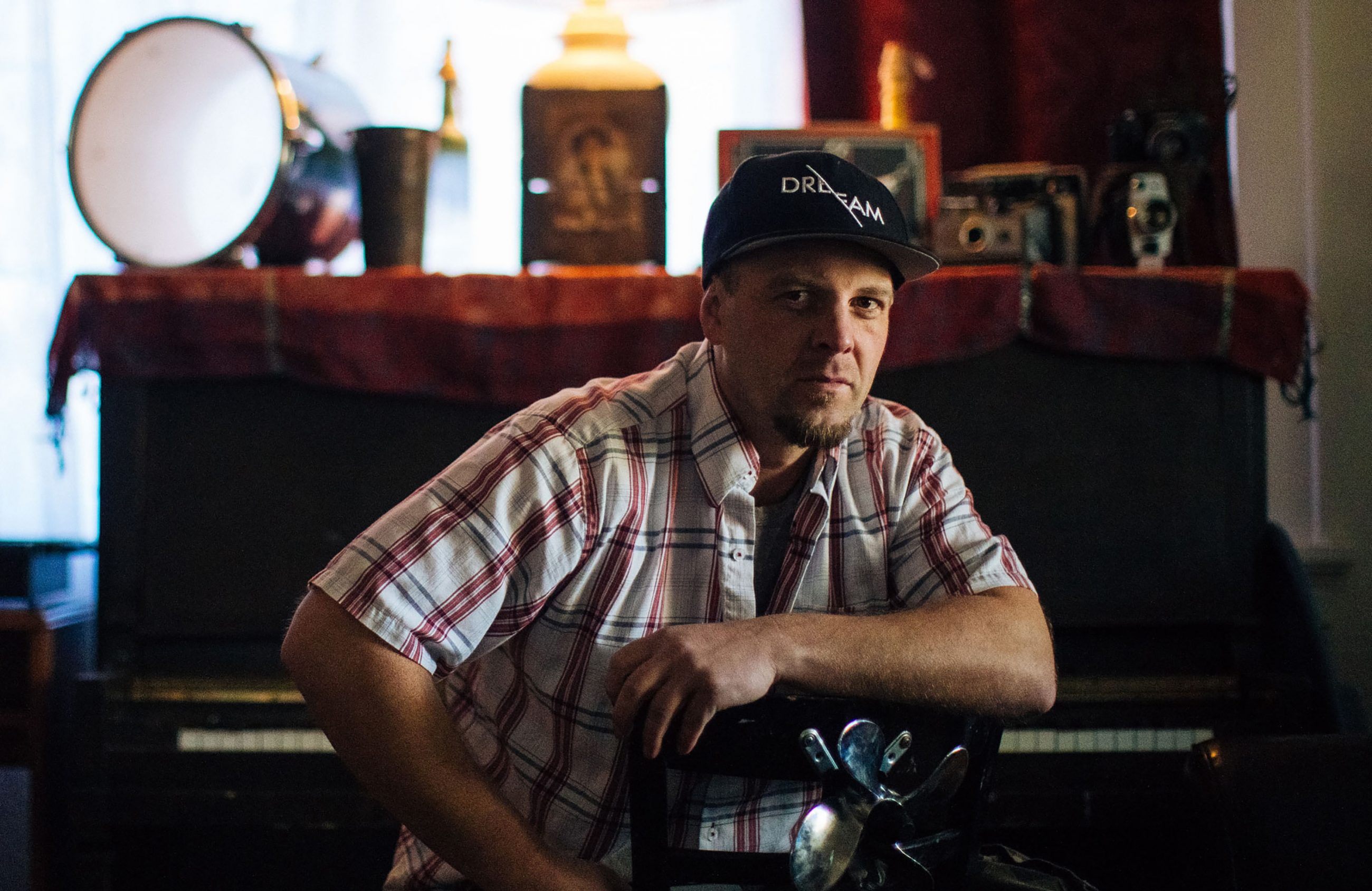Jonathan Baker bought his house in Eugene’s Jefferson Westside neighborhood for a dollar.
The previous owner’s husband had died in 2010, and after 18 months of disagreement about mortgage payments with JP Morgan Chase Bank, she abandoned the house. From 2012 to the end of 2015, the house lay vacant, wasting away, undead — a zombie house.
When a homeowner ceases mortgage payments, banks often fail to maintain the property post-foreclosure and sometimes even stop foreclosure proceedings — without notifying the owner after the house is empty. The defaulted property racks up fines as well as the costs of maintenance, security and legal fees.
When banks keep possession but cede responsibility for maintenance, the resulting zombie houses stress delinquent owners, create a persistent neighborhood blight and often cost cities and counties money.
“We have not dealt with the wreckage of the 2008 housing crisis. Buying these homes out of foreclosure and short sales is very difficult,” Ted Coopman says. Coopman is a Jefferson Westside Neighbors councilor.
In 2013, there were still more than an estimated 300,000 zombie properties in the United States. A 2016 survey by property data services firm Core Logic identified 1,084 real estate owned or REO properties in Oregon — titles taken back by banks from delinquent homeowners.
This number, however, does not include unseized houses.
The Census Bureau’s American Community Survey identified around 43,000 vacant units in Oregon, with approximately 7 percent of those due to foreclosure, providing a rough estimate of more than 3,000 vacant, foreclosed homes in the state.
In 2018, these neglected houses are the scorched remains of the 2008 housing crisis, charred into neighborhood landscapes and nearly impossible to scrape out. The house Baker bought epitomized one of these afflictions.
As banks clasped a forsaken $400,000 mortgage on the bungalow, teenagers gathered in packs to smoke marijuana in the front yard. Bottom-feeding opportunists stripped the house’s guts of appliances, piping and wiring. A gang of heroin users squatted in its skeletal remains, vandalizing hallways while waiting for the next hit and nailing sheets in window frames to keep out an offending sun.
Garbage mounds gathered in corridors and spilled out of its doors. Rats moved in to clean up the remaining waste.
“I finally nailed the gate shut after there were high people streaming into the alley when I pulled up with my kids from school,” neighbor Lark Wadsworth says.
The torn and tattered house, however, was Baker’s best chance at finding a home for him, his wife, Sammeria Baker, and their six children.
Enlarge

Photo by Todd Cooper
Baker, 37, fought wildland fires with Oregon Woods and Dustbusters for 17 years. “Two and a half years ago, I got into a massive car wreck on a blind pass. I was just weeks away from making $50 an hour and landing the position that I’d worked for my whole life.”
Instead, Baker could barely walk. “I didn’t have health insurance because I had never even considered it. Who needs insurance when you can dunk a basketball, fly up hills and cut trails like nothing?”
For months, his family of eight found itself bereft.
“There was supposed to be a large settlement from ODOT,” Baker says, due to lack of warning at the dangerous intersection where he crashed, but there would be no restitution for Baker’s lost career.
“I probably didn’t really have a good lawyer,” Baker says.
Two years later, each day is a struggle. “It’s hard to play with my kids because doctors advised me not to lift over 50 pounds. And I still can’t concentrate for long periods of time.”
To bring in a meager income, Baker was detailing cars when the dealership owner pitched him an idea.
“My boss is like, ‘Jon, ehhhh, you know, I walk by this house every day and would love to buy it, but the bank won’t let anybody touch it.” The owner was willing to sign the deed over for a dollar, just to be rid of it.
Baker was dubious, but purchasing a dollar quitclaim deed — which tranfers the previous owner’s interest in the property to Baker — on a house with a massive lien was a better option than living on the street. Whereas warranty deeds ensure the grantor has the legal right to sell the property, a quitclaim deed offers little to no protection to the grantee.
The deed does provide Baker’s family a home. There is, however, no option to negotiate mortgage payments, because Baker does not own the defaulted loan.
According to city records, at least five banks and mortgage servicers have filed default and foreclosure proceedings without seizure on Baker’s home. Each servicer has a financial share, but none has claimed responsibility to care for the derelict property.
The owner was willing to sign the deed over for a dollar, just to be rid of it.
Even as it decayed, the house gathered interested parties, but mortgage servicers never agreed to a cash or short sale, in which the lender decides to take less cash than what is owed. Offers most likely did not cover enough of the $400,000 defaulted mortgage, but JP Morgan Chase Bank, the primary mortgage holder, will not confirm any numbers.
Keosha Burns, Chase’s home-lending media contact, says, “Our commitment is to communities and to negotiate with homeowners on an offer that makes sense. We do everything we can to keep the people in homes.”
Burns says Chase was working with the homeowner when she stopped paying on the loan five years ago. “As long as parties stay in communication, we can almost always come to a resolution.”
There was no resolution on this home, though, until Baker took action.
“It took four or five months just clean the place up,” he says. “It was completely torn to pieces. No electricity, no wires. No toilets, which didn’t stop people from going to the bathroom there. I have a strong stomach, but I vomited the first time I went into the house.”
After cleaning out the shit, Baker redid the clawfoot tub, scrubbed bathroom tiles clean and layered paint over the scrawl-covered walls. He replaced yards of electric wire, installed pipes to restore the water and hammered in new studs to get the house’s vital systems back in working order.
Mortgage lenders often have to be dragged to the table by creative municipal governments. In Portland, for example, former mayor Charlie Hales launched a plan to threaten municipal foreclosure on dilapidated properties.
“What a disconnect that in a city with a red-hot housing market where you can sell property for a very good return, we have zombie houses,” Hales said in an interview with The Oregonian.
While the city had success converting more than 20 homes in a year, new Portland mayor Ted Wheeler does not consider this to be a fruitful enough process.
“The obstacles for government to take away someone’s property are formidable,” Wheeler told the Portland Tribune. “It’s a very expensive, multi-year process. I’m not sure that’s the best use of our resources.”
By resources, Wheeler means time and money. And it takes a lot of time and money for these houses to recover from years of damage.
With no other viable option, Baker was willing to shell out his time and money.
Now, thousands of dollars of repairs and sweat equity later, Baker moved his family into the rejuvenated home. And that’s where they’ll remain until a mortgage servicer decides to move forward with the repossession proceedings on the property they’ve neglected for five years.
It’s now hard to imagine the disrepair Baker’s house was in. His 2-year-old son Bailey rumbles by with a firetruck as Baker shows off the new refrigerator, stove and kitchen cabinets. He carries his daughter Genova into the back hallway, revealing where he removed a staircase, opening a breezeway.
Baker points above him, indicating a rear section of house. “Upstairs, when I almost had the place cleaned out, I found a secret room behind a closet, just full of stolen bike parts.”
Baker still deals with illicit activity at the fringes of the property. The little nook between the alley and the old structure attracts people searching for a quick fix. “My neighbors want the garage either renovated or torn down,” Baker says.
A year ago, the city of Medford was dealing with similar issues arising from zombie houses.
“We adopted the International Property Maintenance Code (IPMC) to inform owners that they had 10 days to respond and register their home with the city or face the possibility of receivership,” Medford Building Safety Director Sam Barnum says. “The only requirement is that they clean up the property and that they make it look livable.”
The city was still able to convert 47 boarded-up, vacant homes into presentable, if not livable, residences in just one year. This worked because of a concerted effort by city government.
Baker, on the other hand, has been fighting alone.
Cottage Grove also has a zombie house problem. The city’s Public Works and Development Director Faye Stewart says, “When the city finds out somebody’s illegally taken up residence, it doesn’t have the authority to set foot on the property without an absentee owner’s permission.”
In a curious case of a festering home in Cottage Grove, city officials were able to begin zombie house cleanup with a bit of luck and creative thinking.
“We found out an absentee owner was in town. The city attorney suggested we just lease the place,” Myers says.
Leasing the vacant home for a dollar a month for 12 months, Cottage Grove cleared out squatters and brought in dump trucks to remove multiple loads of refuse.
“The goal for city officials is to get banks to auction theses homes off,” Cottage Grove City Manager Richard Myers says. “Banks, however, are reluctant to foreclose because, one, it damages the value of an asset which can be lent against and, two, because they are then on the hook for cleaning up the home and could face fines if they do not do so.”
Without creative government solutions or support from mortgage lenders, some neighborhood associations have stepped up. The Jefferson Westside Neighbors, for example, instituted a Zombie House Initiative to make abandoned houses appear occupied. This defense helps to keep out a persistent, hardcore criminal presence.
“Most unhoused people are good people in unfortunate situations, but once a house gets on the radar of a criminal element, it’s difficult to ever get squatters out,” council member Coopman says.
Once a house pops up on the radar, it’s easy to patrol it. Unless there is obvious illegal activity, though, police can’t enter without a warrant. And until enough complaints pile up to warrant a consistent watch, a zombie house remains a neighborhood plague.
“There’s no way to know how many of these homes still exist in Eugene because banks don’t let us know,” says Eugene community service officer Kelly Putnam.
Putnam has become the city’s de facto zombie house authority. Unless a city directs attention to zombie houses, official responsibility often bounces between municipal departments.
“These reports just kind of found their way to my desk, and after we had success with abatement, all zombie house cases now end up with me,” Putnam says.
Any time a house is boarded up because of a code violation involving drugs, gambling or prostitution, Eugene allows one year to rehabilitate the property or face abatement, appropriating ownership rights due to continuous illegal activity at a residence.
“We’ve only had to go through a full abatement on two homes — one over the course of three years and one over five years. In almost all cases, we’ve been able to negotiate with owners to clean the house up,” Putnam says.
Banks will only communicate with mortgage holders until forced otherwise. Cities, states and renovators like Baker are left in the dark until they choose to take action. Neighbors hope that Baker’s action won’t be for naught.
“He’s been a great addition to the community,” says Lark Wadsworth, who lives behind Baker. “We all hope that he can stay and that the house remains occupied.”
In Baker’s backyard, a flock of fat brown, white and orange chickens now cluck away in the coop where a heroin addict once housed herself.
Enlarge

Photo by Todd Cooper
“The thing was full of used needles and underwear. I took a high-powered magnet to the whole backyard to make sure it was clear of needles so my kids could play back here.”
He takes cautious steps, showing off what he plans to do, hazel eyes shining. “The garage might be the oldest structure on the property. I’d love to fix it up to provide another residence back here,” Baker says.
Through it all, Baker remains optimistic.
“This house has been nothing but a blessing,” Baker says. “It’s cost me an arm and a leg, but if we get thrown out tomorrow, it would be worth all of the blood and sweat that’s gone into it.” ■
